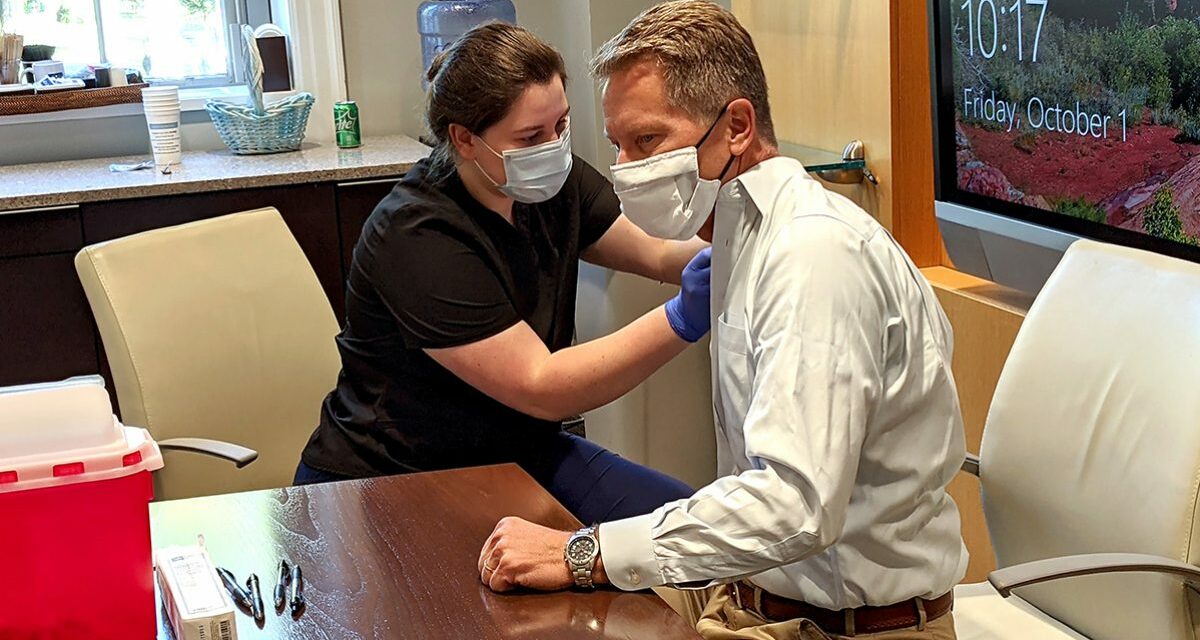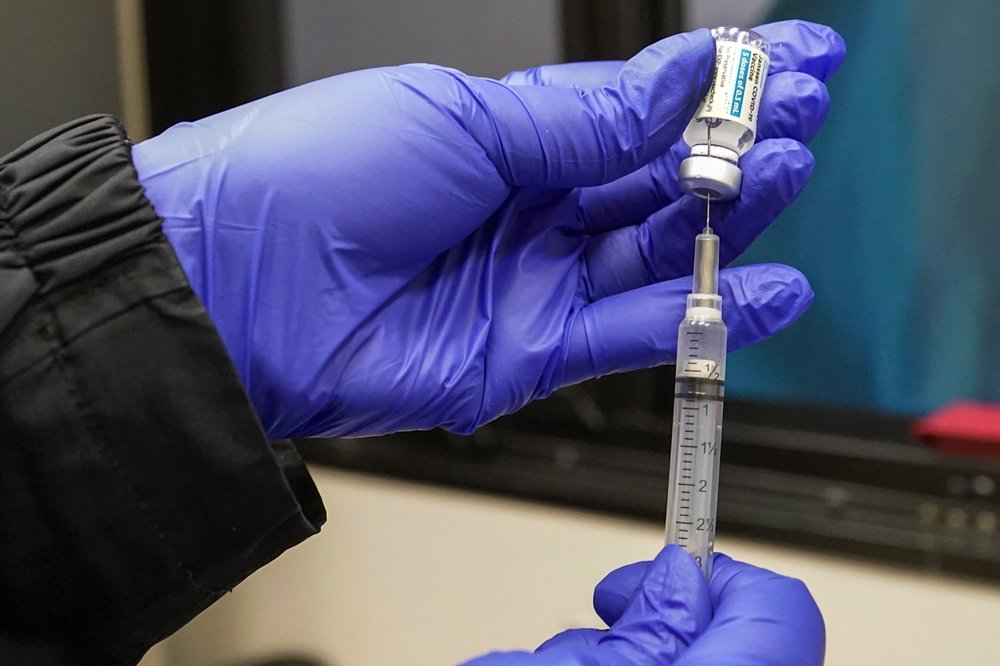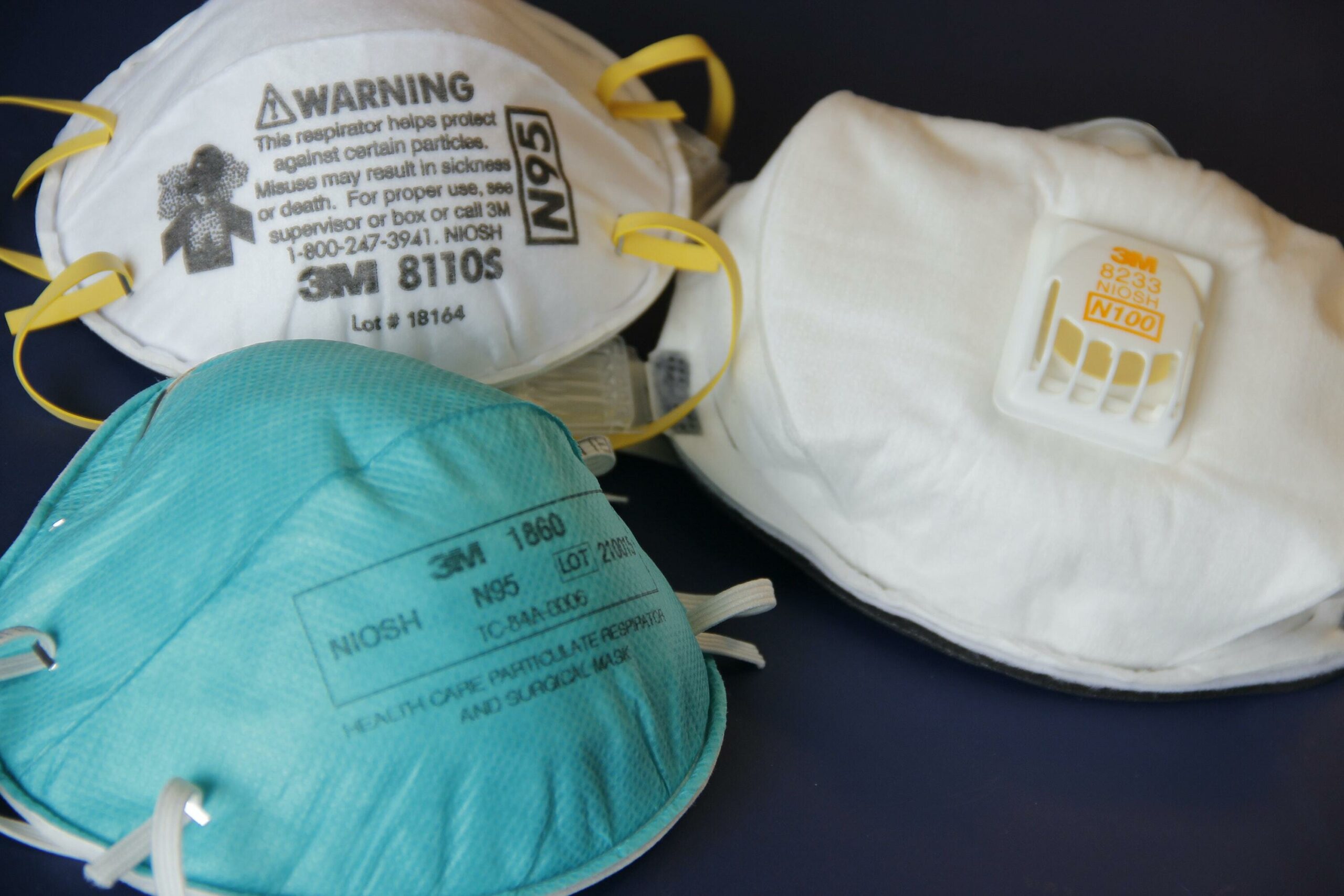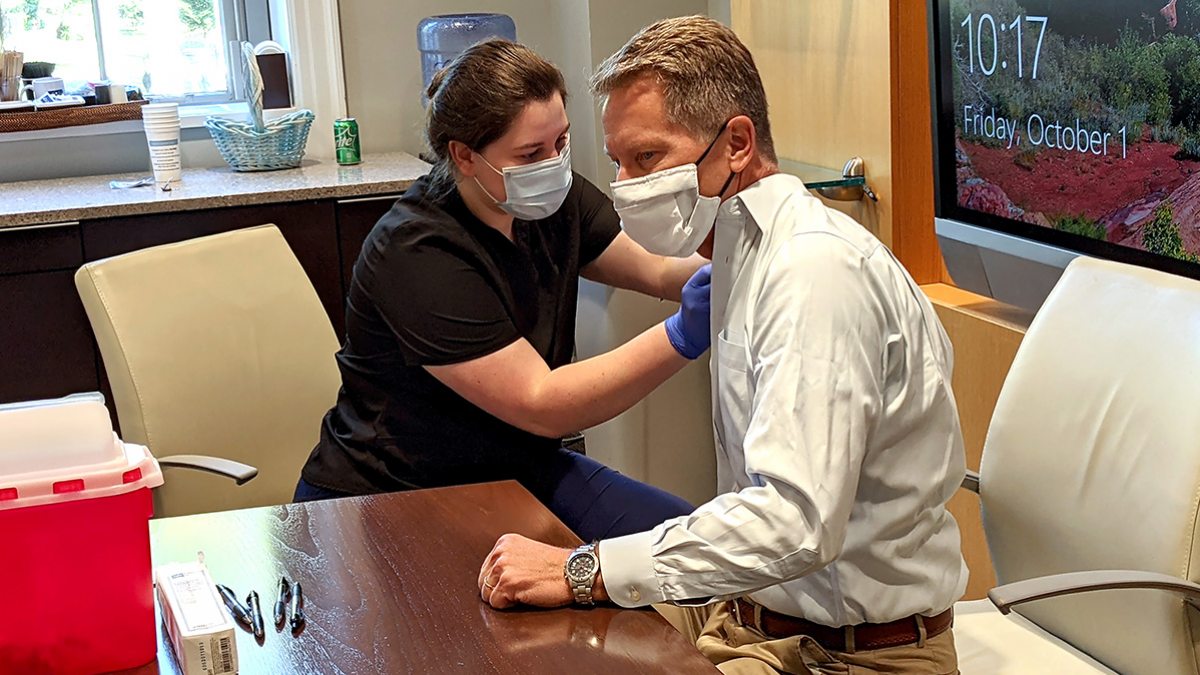As public health officials push for COVID-19 vaccinations and boosters to protect against the rapidly spreading omicron variant, flu shots have recently taken a backseat to the pandemic.
But flu season isn’t over yet – and UNC isn’t done with its vaccination efforts.
This year, 21 universities across the nation participated in a challenge to immunize as many of its students, faculty, and staff against the flu ahead of when cases of the respiratory virus typically peak.
From September to December 2021, UNC provided more than 7,700 flu shots to the campus community, effectively clinching the title of National Champions in the annual Alana Yaksich University Flu Vaccination Challenge.
Michelle Camarena, the Campus Health Director of Nursing and Performance Improvement and the Co-Chair of Infection Control at UNC, said this is the fourth year in a row that Carolina has won this distinction.
“Our goal is to get folks vaccinated,” Camarena said, “and anything we can do to increase those numbers serves the campus community. And then if we win a trophy for it, even better.”
Alana’s Foundation, which hosts the university vaccination challenge, was founded in 2009 in memory of Alana Yaksich, who died of influenza at age 5 in 2003. For the 2020 – 2021 flu season, the foundation awarded nearly $20,000 in grant money to participating colleges and universities to purchase flu vaccine for their uninsured or underinsured students.
Amy Sauls, UNC’s Campus Health Director of Pharmacy and Professional Services, said although the university-wide challenge ended in December, with rising COVID cases and hospitalizations, it is more important than ever to get the flu vaccine. Per the CDC, a 2021 study showed that, among adults, flu vaccination was associated with a 26 percent lower risk of ICU admission and a 31 percent lower risk of death from flu as compared with those who were unvaccinated.
Thankfully, Sauls said UNC has really done its part to protect the community – something that has been highlighted during Alana’s vaccination challenge.
“One thing that really sets us apart is the accessibility of the [flu] vaccine,” Sauls said. “The fact that we make it available on a walk-in basis, five to six days a week, is really different than [what] a lot of university health centers are able to do who require appointments.”
During the fall semester, the university hosted multiple walk-up flu vaccination clinics across campus. Now, the Student Stores and Campus Health Pharmacy continue to offer no-appointment flu shots for students, staff and “anyone who considers themselves a Tar Heel.”
And for those who are worried that they can’t get the flu shot if they’ve recently been immunized against COVID-19, Camarena has a message:
“It is safe to get your flu vaccine at the same time as your COVID vaccine,” Camarena said. “These are both inactivated vaccines and are safe to be given together. So, we do do that at our pharmacy locations.”
The CDC estimates that, from October 1, 2021 through January 8, 2022, there have been up to 2.7 million flu illnesses and anywhere from 970 to 2,900 flu deaths nationwide. Recent studies show, however, that flu vaccination reduces the risk of flu illness by between 40 and 60 percent among the overall population.
For those who have yet to receive their flu vaccine, as colder weather finally settles in, Sauls said it’s not too late to roll up that sleeve.
“The flu season is fairly unpredictable every year,” Sauls said. “We’ve seen very late seasons. We’ve seen early seasons. So, the best time to get one is when it’s available to you. We would encourage anyone who hasn’t yet gotten one to go ahead and get one for this year, because we could see flu on up until April.”
Lead photo via Lucy Dunderdale Cate/UNC-Chapel Hill.
Chapelboro.com does not charge subscription fees, and you can directly support our efforts in local journalism here. Want more of what you see on Chapelboro? Let us bring free local news and community information to you by signing up for our biweekly newsletter.











